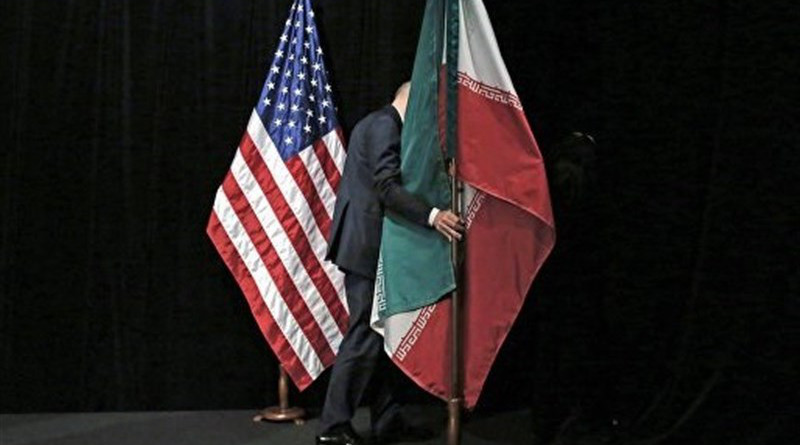Washington’s Move To Trigger UN Sanctions Against Iran – Analysis
By IPCS
By Sanaa Alvira*
On 20 August, the US officially submitted a notification to the UN Security Council (UNSC) that triggered a 30-day countdown to reimpose UN sanctions on Iran. It cited significant violations of the Iran nuclear deal, formally known as the Joint Comprehensive Plan of Action (JCPOA), from which it had withdrawn in May 2018. UNSC Resolution (UNSCR) 2231, which endorsed the nuclear deal, had lifted all UN sanctions against Iran. On 19 September, US Secretary of State Mike Pompeo announced the return of all UN sanctions on Iran.
13 of the 15 UN Security Council (UNSC) members, including long-time US allies, wrote letters expressing their opposition. They claimed the US could not invoke the snapback provision as it had quit the deal two years earlier.
What is the snapback provision? Did the US have any basis for invoking it?
Background
The US proposal to extend a global arms embargo on Iran was rejected in the 14 August UNSC vote. The Dominican Republic voted for, and 11 members abstained. China and Russia voted against.
Calling the UNSC’s “failure” to act “inexcusable,” Washington followed through with an attempt to invoke the snapback provision in UNSCR 2231, which permits a re-imposition of UN sanctions on Iran. But what exactly is this provision?
The term ‘snapback’ is used to describe a process by which all UN sanctions and restrictions against Iran would be re-imposed. Resolution 2231 cannot be blocked by a veto. Ordinarily, once sanctions against a country are terminated, re-imposition would require the passing of a new UNSC resolution, which could then be vetoed.
The snapback provision was incorporated as a fall-back in anticipation of future hypotheticals, such as a breakdown in Iranian compliance with the deal, and a lack of consensus in the UNSC on re-imposition of sanctions. The snapback provision thus allows any JCPOA participant state to unilaterally compel the UNSC to take action.
The Legal Debate
The debate on whether the US has a right to invoke the snapback provision stems from its decision to withdraw from the nuclear deal. The text of UNSCR 2231 states that any “JCPOA participant state” must make a “notification” to the UNSC regarding Iran’s “significant non-performance of commitments under the JCPOA.” The dominant opinion is that given US withdrawal, it is no longer a participant to the JCPOA. The question of its ability to invoke snapback therefore does not arise.
The US, on the other hand, highlighted the language used in 2231: the participants of the deal are mentioned by name, which of course includes the US, followed by the parenthetical phrase “(the JCPOA participants).” The argument then is that the US is defined as a “JCPOA participant state” in a binding UNSC resolution, and hence retains the permanent right to trigger the snapback process. It does not matter if a country has withdrawn from the deal—there is no specific instruction regarding this in 2231.
The US’ arguments appear to be legally tenuous because that the term “participants” is not just an honorary term—it implies certain commitments for participating states. According to the US’ own official statement from 8 May 2018, “The United States would cease participation in the agreement.” The dissonance between not being a participant—by its own admission—but still claiming a right that belongs (only) to participants resulted in the US being isolated in its bid to reimpose UN sanctions against Iran.
Who Decides?
The conundrum is in determining who gets to decide which country is a participant state, and more importantly, its implications for the deal as a whole. It is logical for JCPOA participants themselves to take a call on this.
According to the UN spokesperson, “Security Council members will need to interpret their own resolution,” and not the secretary general. The UN lacks a neutral, designated person or institution to adjudicate whether the US is still a participant. Theoretically, the UNSC could formally request an opinion of the secretary general or the International Court of Justice (ICJ), but the US could block such attempts.
Conclusion
The US announcement of the return of sanctions has now raised several political and legal questions about how the US is planning to enforce multilateral sanctions unilaterally. As long as other countries continue as party to the JCPOA, the US stand will have little effect. It remains to be seen how each country carves out its stance to these ongoing developments.
*Sanaa Alvira is a Research Intern with the Nuclear Security Programme (NSP) at IPCS.

